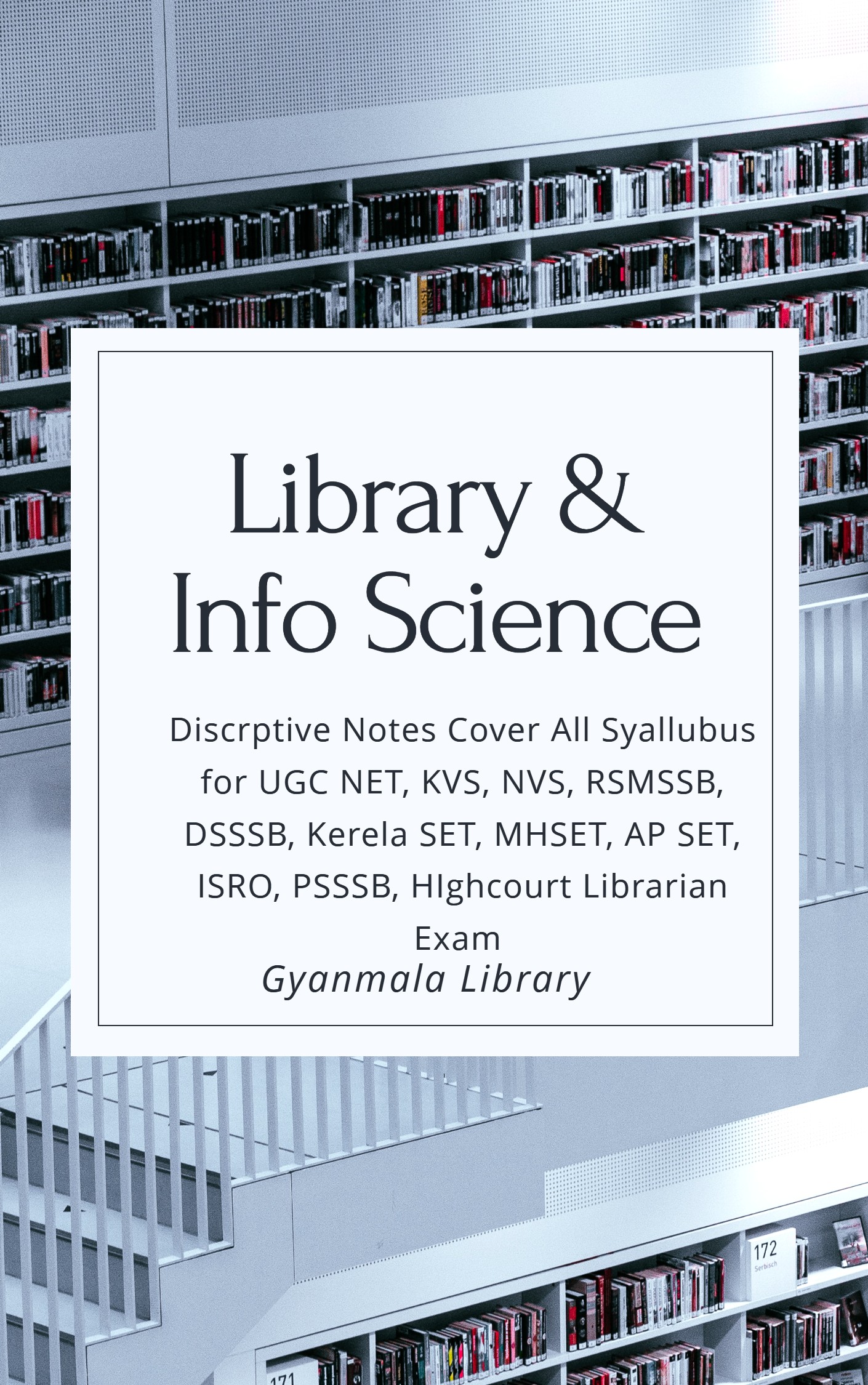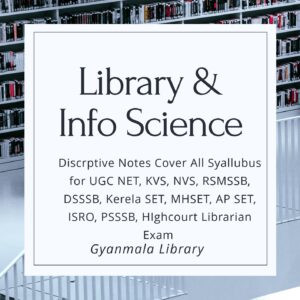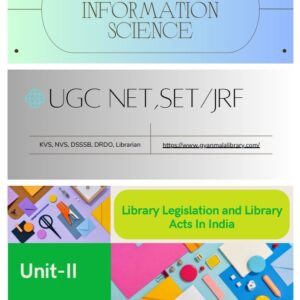Descriptive Notes for all Syllabus UGC, KVS,NVS, DSSSB, RSMSSB etc

Descriptive Notes for all Syllabus
LIS Descriptive Notes for All Syllabi: UGC, KVS, NVS, DSSSB, RSMSSB
Library and Information Science (LIS) is a dynamic field that plays a crucial role in the management and dissemination of knowledge. Many competitive exams, such as UGC NET, KVS, NVS, DSSSB, and RSMSSB, require aspirants to have a strong grasp of LIS concepts. This blog post provides an overview of the descriptive notes needed for these exams, covering essential topics and their relevance.
1. Understanding the LIS Syllabus
Each exam has a slightly different syllabus, but the core concepts remain the same. Below are the major topics covered in these exams:
- Library and Information Science Basics: Definition, Scope, and Importance
- Library Classification & Cataloguing: Colon Classification (CC), Dewey Decimal Classification (DDC), Universal Decimal Classification (UDC), AACR2, RDA
- Information Sources & Services: Primary, Secondary, and Tertiary Sources, Reference Services, Bibliographic Services
- Library Management & Administration: Library Legislation, Budgeting, HR Management, Stock Verification
- Digital Libraries & ICT Applications: Institutional Repositories, Open Access, Digital Preservation, Cloud Computing, Library Software (Koha, DSpace, Greenstone)
- Research Methods in LIS: Quantitative & Qualitative Research, Bibliometrics, Scientometrics
- Library Legislation & Ethics: Copyright Laws, Intellectual Property Rights (IPR), Right to Information (RTI), National and International LIS Organizations
- Emerging Trends in LIS: Artificial Intelligence in Libraries, Big Data, Blockchain Technology in LIS
2. Exam-Specific Focus Areas
(i) UGC NET LIS
- In-depth knowledge of LIS theories and research methodologies
- Digital libraries, information retrieval, and bibliometric studies
- Current trends in information technology and their impact on libraries
(ii) KVS/NVS Librarian Exam
- Emphasis on school library management
- Curriculum-based library services and user education
- ICT applications and e-learning resources in school libraries
(iii) DSSSB Librarian Exam
- Public library systems and their administration
- Information services for different user groups
- Government policies and LIS regulations in India
(iv) RSMSSB Librarian Exam
- Library classification and cataloguing techniques
- Rajasthan library legislation and state-specific LIS policies
- Digital resource management and e-governance in libraries
3. How to Prepare with Descriptive Notes?
- Concept-Based Learning: Focus on understanding key concepts rather than rote memorization.
- Structured Notes: Summarize topics in an easy-to-read format with bullet points and flowcharts.
- Case Studies & Examples: Use real-world examples to understand concepts better.
- Current Affairs & Trends: Keep up with the latest developments in LIS.
- Practice Answer Writing: Develop the ability to write well-structured, analytical answers.
4. Recommended Books & Resources
- “Foundations of Library and Information Science” – Richard E. Rubin
- “Library and Information Science: UGC NET Guide” – Prithvi Singh
- “A Handbook of Library and Information Science” – C.K. Sharma
- Online Platforms: NPTEL, Swayam, eGyanKosh, INFLIBNET
Conclusion
Preparing for LIS exams requires a strategic approach with comprehensive descriptive notes. By focusing on key concepts, exam-specific topics, and practical applications, aspirants can boost their chances of success. Whether you are appearing for UGC NET, KVS, NVS, DSSSB, or RSMSSB, these notes will serve as a valuable guide in your preparation journey.
Happy Learning & Best of Luck!





